Table of Contents
Landmarks
Other Crossway Books by Lydia Brownback
Contentment: A Godly Womans Adornment
Finding God in My Loneliness
Joy: A Godly Womans Adornment
Purity: A Godly Womans Adornment
Sing a New Song: A Womans Guide to the Psalms
Trust: A Godly Womans Adornment
A Womans Wisdom: How the Book of Proverbs Speaks to Everything
 6
6 
Bibi Aesha was forced into Aesha is a victim, if there ever was one.
How would you define that term, victim ? We hear it so frequently today, as its regularly applied to anyone who has experienced any kind of suffering in any sort of circumstance. But an indiscriminate application of the term is ultimately harmful because it skews our understanding of what categorizes real victimization. Its all relative, some would argue, and to a degree thats true. Yet we take it too far. Doesnt it seem a bit absurd to claim someone is suffering because she has a hangnail? My friend is the victim of a hangnail, or, My friend is a hangnail survivor seriously?
A true victim is someone solely at the mercy of her abusers. Children trapped in abusive homes are victims. Women isolated under the tight rein of Sharia law are victims. Parents who lose a child to a drunk driver are victims. True victims are powerless to stop abuse or change their circumstances. And since thats true, we harm more than help when we attach the term victim that identityto those who are simply suffering the consequences of their own bad choices or those whose sensibilities have been offended by opposing viewpoints.
To flip all that around, in another sense we are all victims. Every one of us is a victim of the ultimate abusersin. Left to ourselves, we are powerless against it because, like children trapped in abusive homes, we are born into it. Fueled by Satan, sin tricks, traps, manipulates, and demands to be obeyed, and when we give in, we suffer all the more, and our attempts to escape never work. We need to be rescued not only by someone who can shield us from sin but from someone who can destroy it and the Devil too. Thats Jesus , and its what he came to do. Once in Christ, even though we are harassed by sin, we are its helpless victims no longer. Unless we choose to be.
Dig
Kylie grew up in the home of parents whose lives were embedded in a strict fundamentalist church in which the pastors word was authoritative, not only over spiritual matters but over work and family life as well. When it came to child raising, he determined good behavior from bad and dictated both reward and punishment. Parents were required to discipline children for joylessness, a look of defiance in the eyes, and reluctance to tend the church grounds every day after school. Discipline for such infractions typically involved severe beatings, which the pastor ordered parents to carry out and then report to him afterward. Needless to say, Kylies childhood was characterized by fear. And Kylie was most definitely a victim.
Despite her troubling childhood, Kylie has a good relationship with her parents now, three decades later. Shortly after Kylie left home at eighteen, her parents grew disillusioned with the pastor and left the church, and they asked for Kylies forgiveness, expressing great remorse for the abuse she experienced. Today Kylie attends a sound church. She is married to a kind and gentle man and devotes personal time and resources to a local charity for the homeless. Even so, Kylie doesnt identify first and foremost as a Christian, a wife, or a helper. She defines herself as a victim. Her past overshadows her present.
Living the Past in the Present
Her story isnt uncommon. And its easy to understand how the trauma of severe abuse can come to define a victims life. How glorious, then, that when we are united by faith to Christ, he frees us from the past and gives us a whole new identity. If anyone is in Christ, he is a new creation, Paul writes. The old has passed away; behold, the new has come (2 Cor. 5:17). All that has shaped and defined us in the past is over and done with. So if this is true, if the gospel fundamentally disentangles us from the clutches of past trauma, why does Kylie still identify more with her past than with her present and future blessings?
Some of why is simply the reality of life in our fallen world. Kylie does have a brand -n ew identity in Christ, and therefore the old truly has passed away, but she, like each of us, has been shaped by the totality of all her experiences, both good and bad. As a result, the outworking of her new identity in Christ is a process, one thats likely to unfold to her slowly over months or even years. As of today, Kylies childhood trauma has always been so much a part of her personal identity that she doesnt know who she is apart from it, so the idea of losing the old identity feels threatening.
I recall her panicked outrage after we attended a lecture in which an older woman shared her own story of childhood abuse. Kylie fumed all the way home, saying, She thinks she suffered? Thats nothing compared to what I went through. Kylie could feel no compassion for this fellow sufferer because, in Kylies mind, the other womans suffering seemed somehow to diminish her own. And fueling her outrage was a bit of jealousy, because, unlike Kylie, the lecturer was compensated for her suffering by a public platform and crowds of sympathizers. Kylie doesnt yet see that who she is in Christ and what she has in her union with him is so much better.
Retaining her victim identity also helps Kylie justify her anger. Certainly anger at injustice and abuse is a natural reaction, and there is a righteous anger that seeks justice for the oppressed and grieves when evil causes horrific suffering, disfigures creation, and veils Gods glory. But Kylies anger is aimed at God himself. She cannot understand how a good God could have allowed such horror to occur. Its this kind of anger thats always simmering just below her pleasant demeanor and careful words, and it shows on her face more than she realizes. To her way of thinking, God let her down. He failed to protect her, and now he owes her. Part of the problem here is that Kylie hasnt yet grasped the nature of sinnot only the sin of those who harmed her but her own as well. Sin is rightly understood only when its held up against the holy, righteous nature of God. As Kylie grows in her knowledge of God, she will come to understand that God owes nothing to anyone, and that any good we receive (or bad we avoid) is a gift of Gods mercy.
Because Kylies sense of identity is rooted in the trauma of her early years, she unwittingly short -c ircuits her present -d ay life and relationships. Were you to ask her about her many job changes, shed tell you about micro m anager bosses and excessive demands on her time. If you were to ask her about the list of lost friendships, youd hear about bad listeners and selfish takers. Kylie doesnt see that her unresolved anger and unwillingness to let go of the past rob her of motivation to take on the responsibilities of adulthood and lead her to demand coddling and endless sympathy from friendships that inevitably end.
Discern
As I write, the national news is dominated by yet another school shooting, but the focus of the news isnt the individuals who lost their lives; its the analysis of why the shooter went on a killing spree. Aside from the arguments for and against gun control, theres all the debate about mental illness, and thrown in is the scrutiny of the shooters background. Does the blame lie with the environment in which he was raised? Did he have loving parents? Was he bullied in school? People are desperate to find answers, some quantifiable way to explain the mass killing. Surely someone who could brazenly shoot a multitude of fellow teenagers must be a victim of something or someone. Any answer will doso long as it isnt sin.

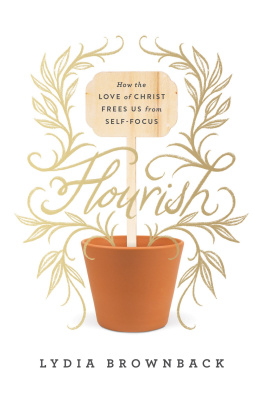
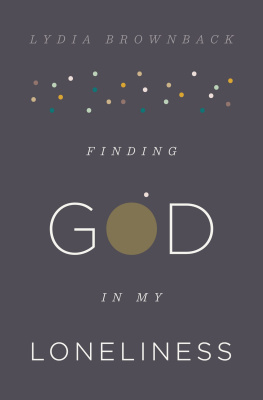
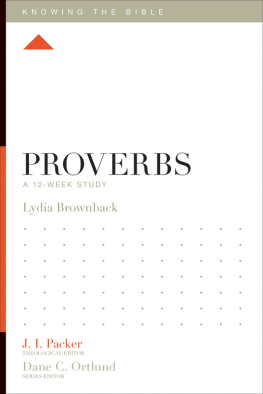
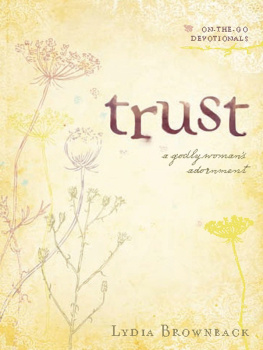
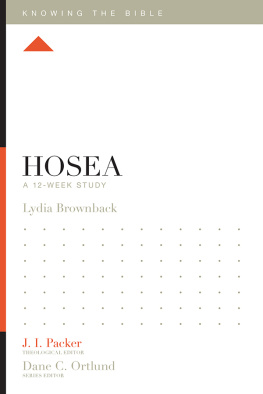
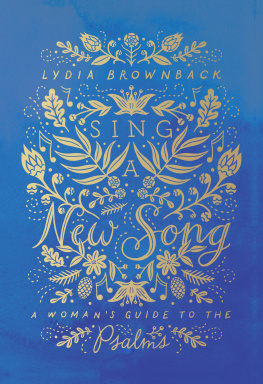
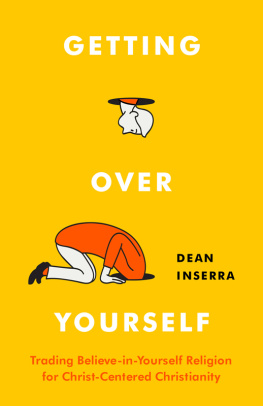
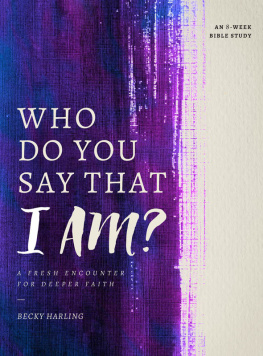
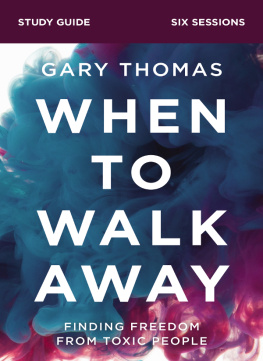
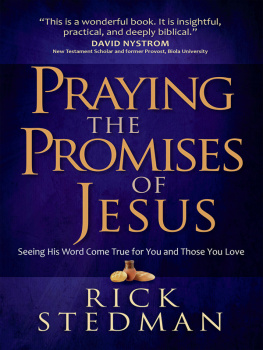
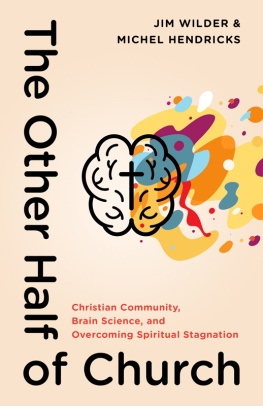
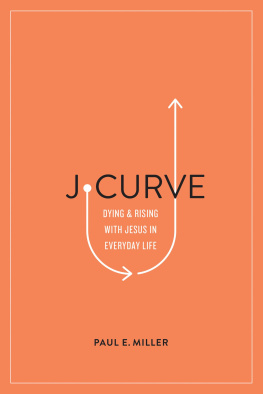
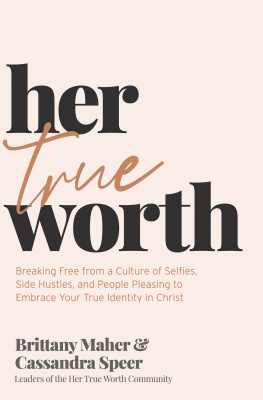

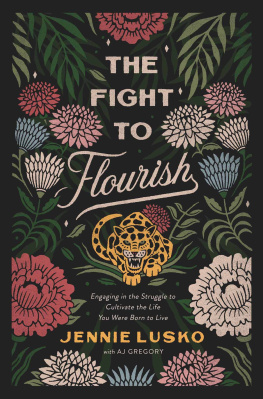
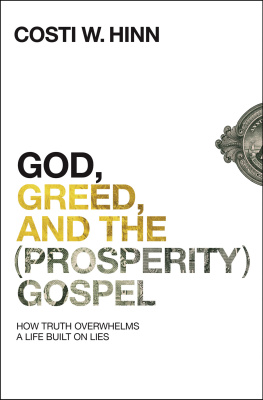
 6
6 